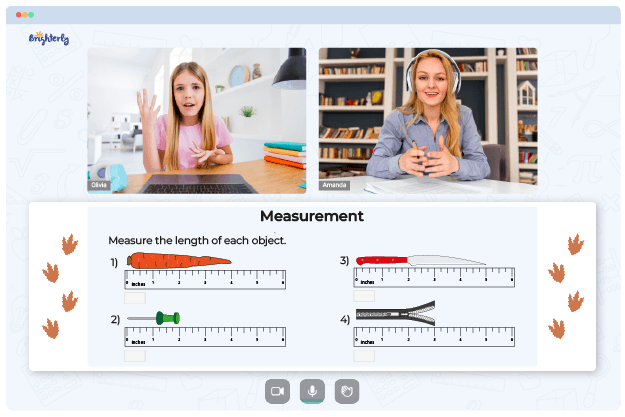Ruler – Definition with Examples
reviewed by Jo-ann Caballes
Updated on October 3, 2024
At Brighterly, we make math fun and easy to learn.
We explain the essential tools you’ll use in your math education so you understand how to use them effectively.
In this article, we discuss measuring rulers! This includes the ruler definition, how to measure using rulers with numbers and practice questions.
What is a ruler?
A ruler is a flat, rectangular tool used to measure the length of objects in centimeters, millimeters and inches. Its shape makes it easy to measure the length of objects or the distance between two points. The ruler numbers indicate lengths.
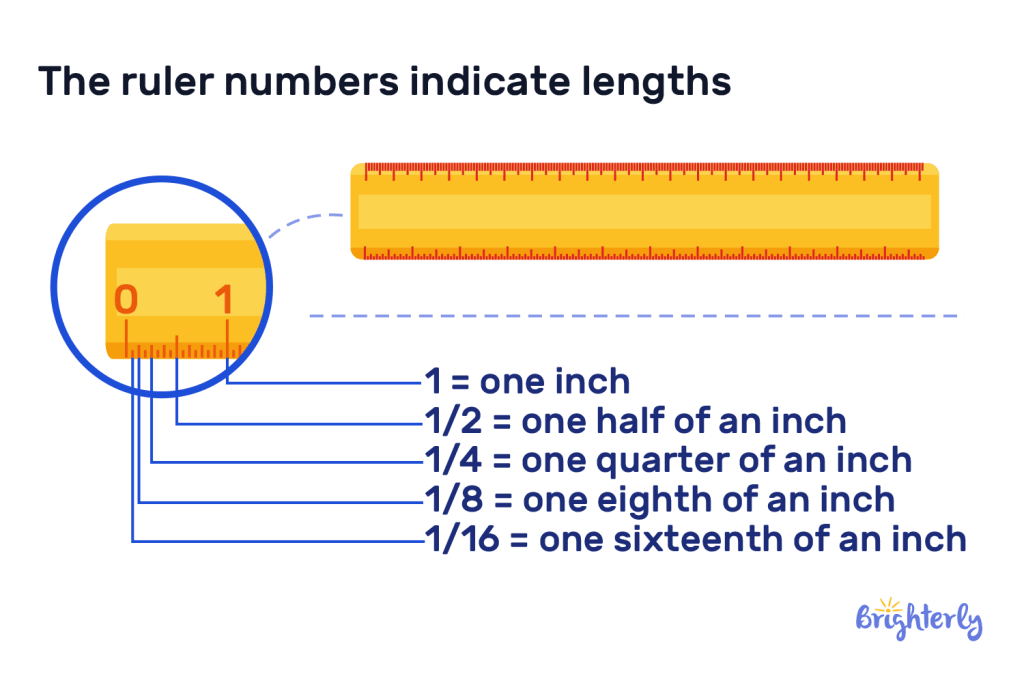
Types of rulers
There are different types of rulers, all with their ruler meanings.
Standard ruler
Standard rulers are the most common type of measuring ruler, especially in schools. The ruler size is 12 inches (30 centimeters) and has measurements for inches, millimeters and centimeters marked up.
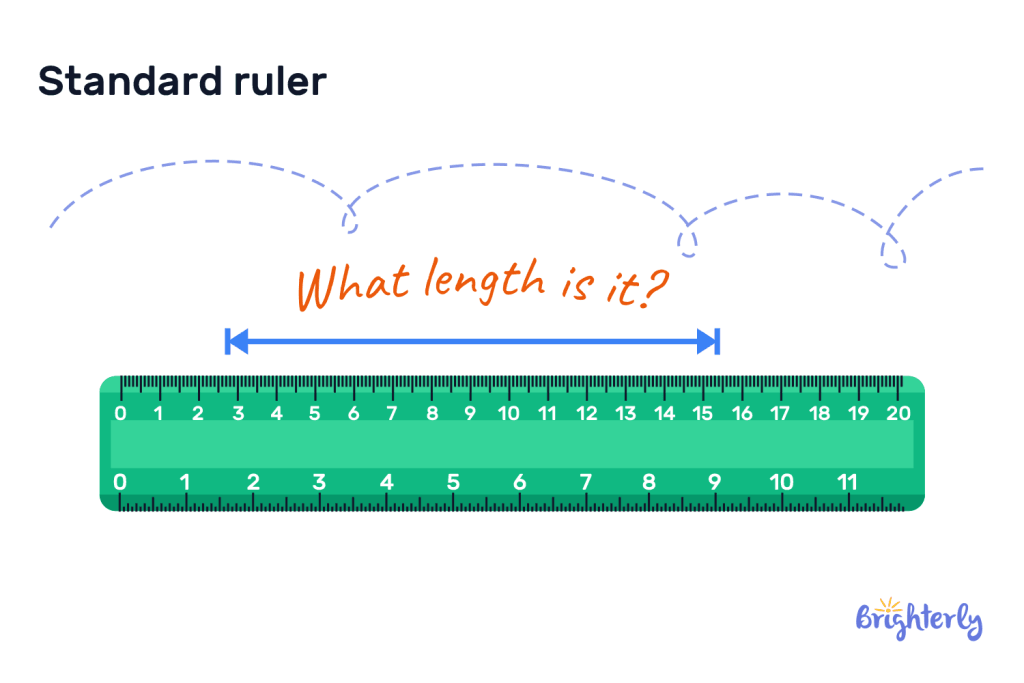
Architect’s scale
An architect’s scale is a specialized type of ruler with numbers that architects use to measure and scale drawings. It features many different scales, meaning architects and engineers can easily scale and convert ruler measurements to work out drawings at their true size – for example, building plan drawings.
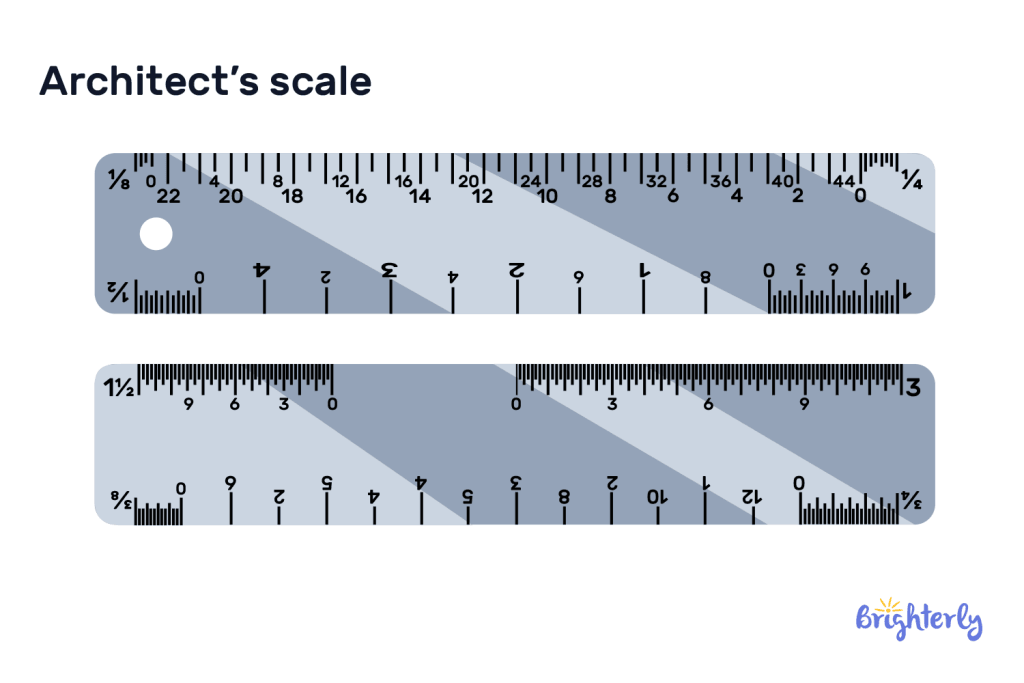
Engineer’s scale
An engineer’s scale is another type of specialized measuring ruler similar to the architect’s scale. What makes an engineer’s scale different is that it uses a base-10 system for engineering and technical drawings.
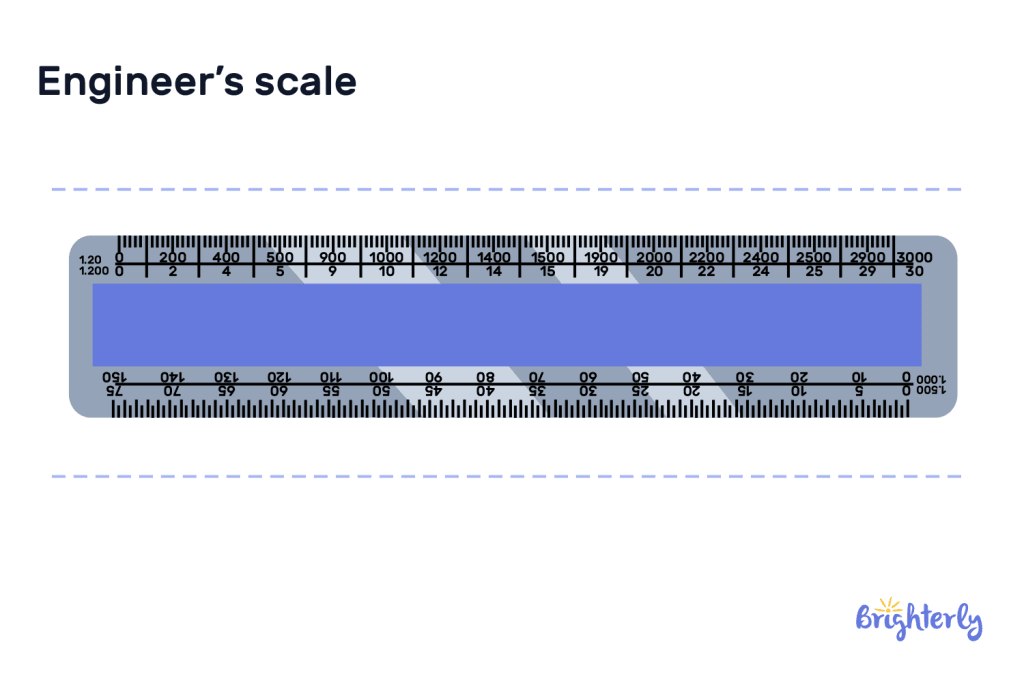
Flexible ruler
A flexible ruler is still flat and rectangular, but it can bend and curve. This means you can measure irregularly shaped objects easily. They’re often made from bendy plastic or fabric to allow them to mold to different shapes.
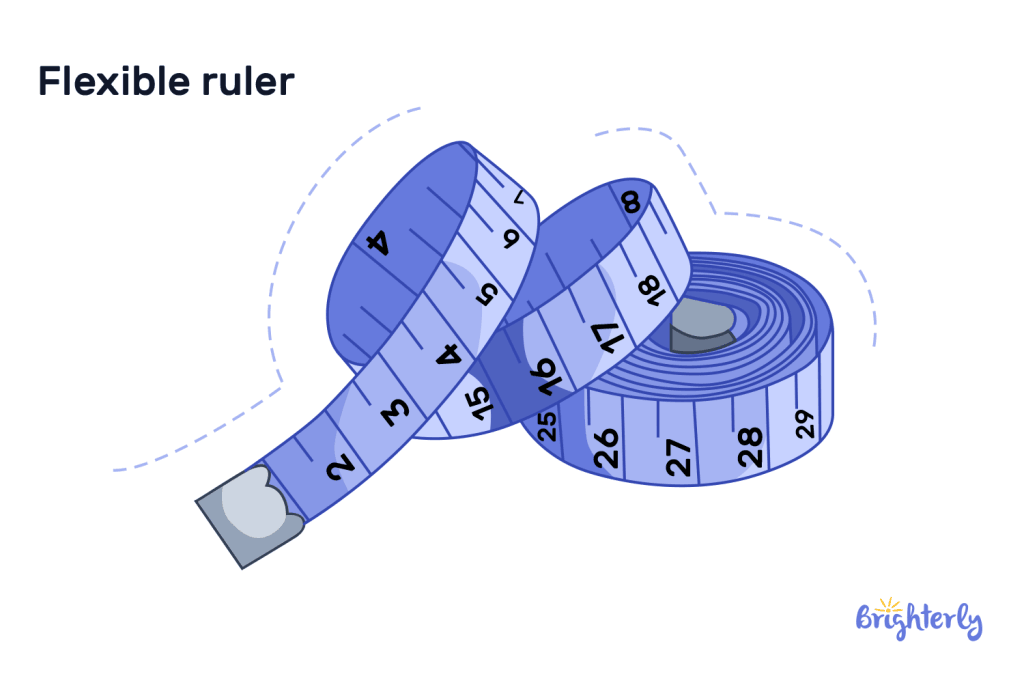
Digital ruler
A digital ruler can measure items and display their measurements on a screen. Because they’re digital, they can be adjusted to different units of ruler measurement.
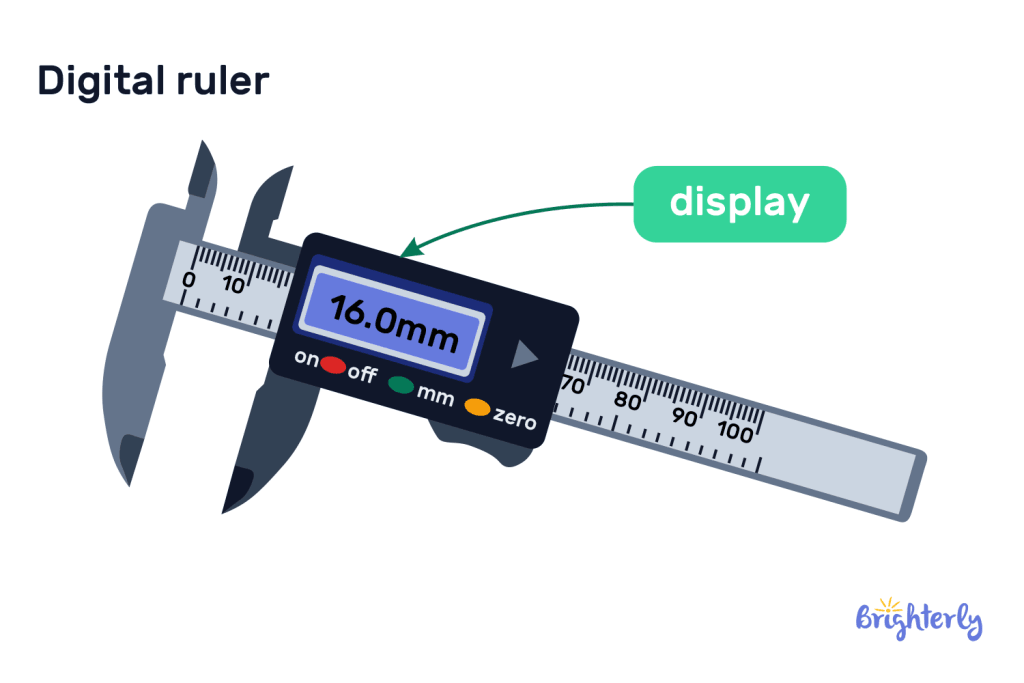
How to measure the length of an object?
To measure the length of an object, place it down on a flat surface like a table. Hold your ruler underneath, aligning the left-hand side of the object with the ‘0’ measurements on the ruler. The length of your object will be where it finishes on the right-hand side – so you’ll read the ruler measurement where it ends.
You can hold your measuring ruler up to objects – e.g., a calendar on your wall. For square or rectangular objects, you can lay your ruler flat on top.
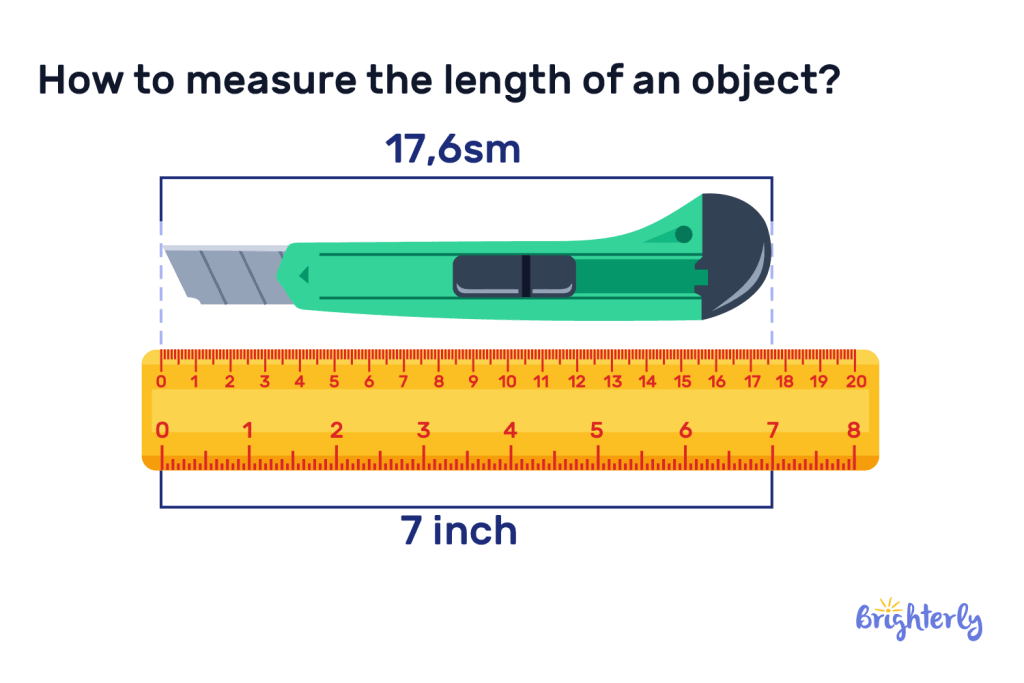
Reading a ruler [centimeters and millimeters]
When reading centimeters and millimeters on a ruler with numbers, hold the ruler with the centimeter and millimeter side facing upright. Centimeters are marked with long lines, millimeters are marked with shorter lines and 5mm is marked with medium-sized lines, with 10mm per centimeter.
When measuring, read the closest marking to where the object ends – so if it ends halfway between 5cm and 6cm on your ruler, it’s 5.5cm long.
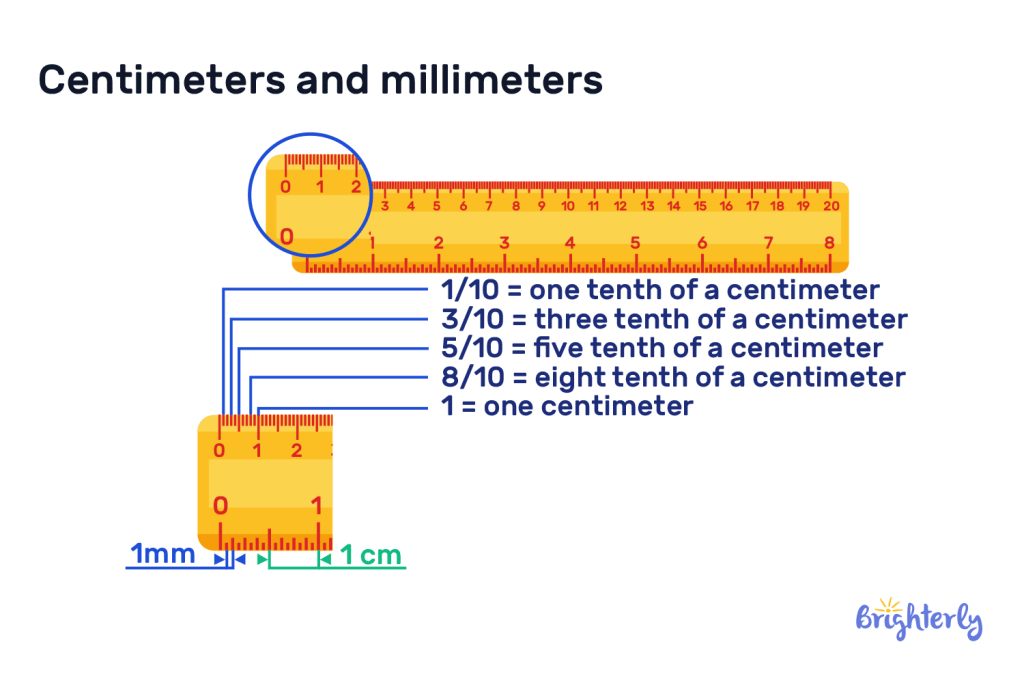
Reading a ruler [reading inches]
When reading inches on a ruler, hold your ruler with the inches side facing upright. Because inches don’t have a smaller comparable measurement like centimeters do, the smaller measurements on ruler count 8ths and 16ths of an inch.
Read the closest marker to where your object finishes – so if it finishes 7 lines between 3 and 4, it’s 3 and 7/16ths inches.
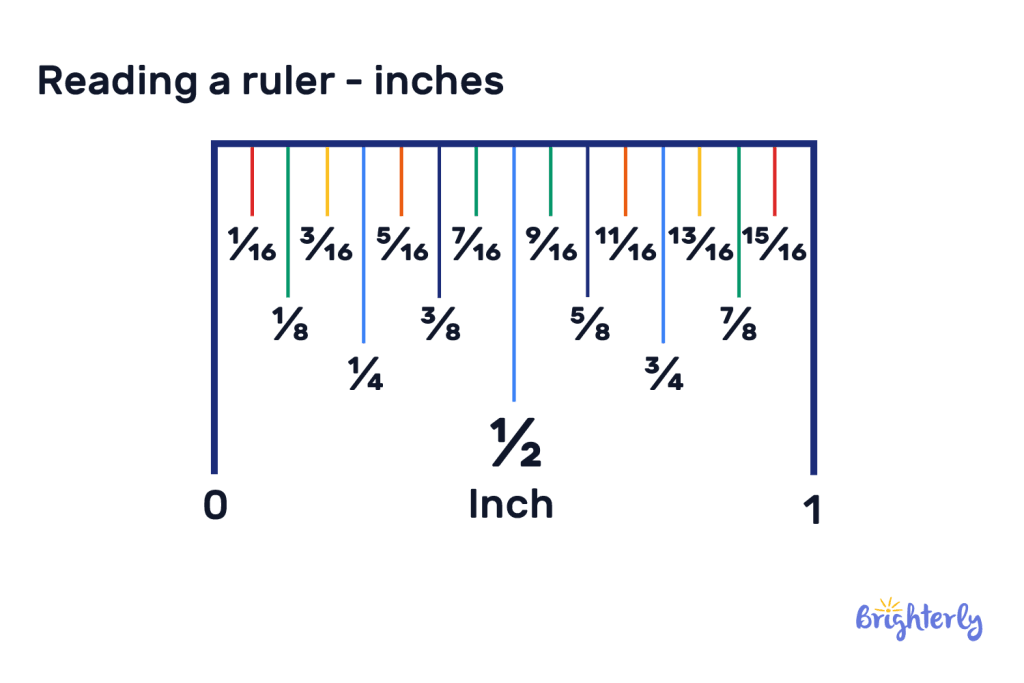
Solved math tasks: examples
Solved math task 1
Measure the length of a pencil in centimeters using a ruler.
- Put your pencil on a flat surface.
- Ensure one end of the pencil aligns with the ‘0’ marking.
- Read the marking closest to where the pencil ends. Let’s say that the marking is 8.4cm
- The pencil is 8.4cm long.
Solved math task 2
In inches, measure the distance between two points on a piece of paper with a ruler.
- Put your paper on a flat surface.
- Align the first point with the ‘0’ on your ruler.
- Read the marking closest to the endpoint. Let’s say that the marking is 6 ¾ inches
- The distance is 6 ¾ inches.
Rulers: practice math problems
Ruler worksheets
We have created a number of ruler and measurement math worksheets to help you practice using a ruler:



